Find Help
More Items From Ergsy search
-

Period pain (dysmenorrhoea) - BSL
Relevance: 100%
-
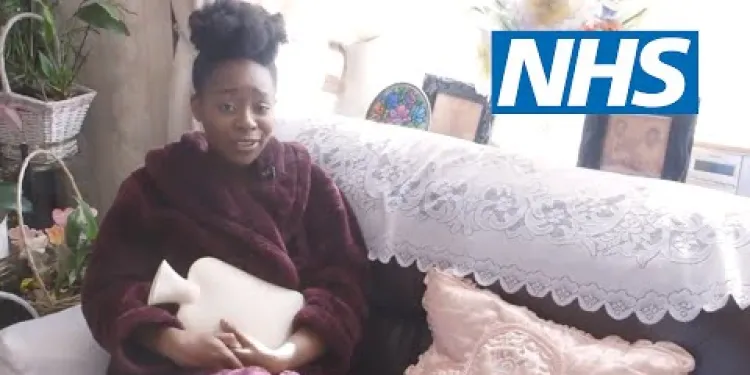
How to deal with period pain | NHS
Relevance: 66%
-

How to deal with period pain | NHS
Relevance: 57%
-

How to deal with period pain | NHS
Relevance: 53%
-

How to deal with period pain | NHS
Relevance: 53%
-

Can I use Ibuprofen for menstrual pain?
Relevance: 30%
-

Irregular periods - BSL
Relevance: 30%
-
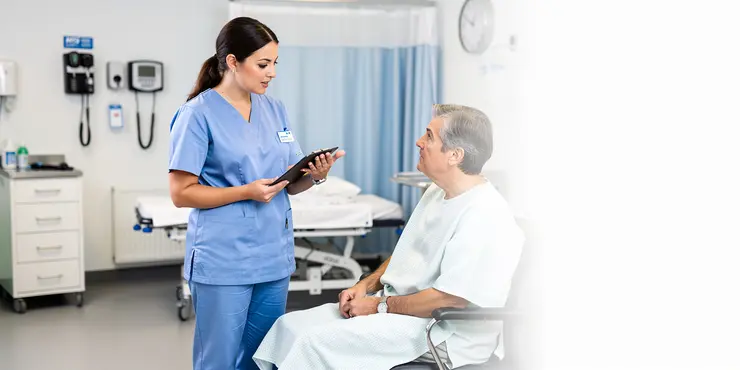
Is a facelift painful?
Relevance: 30%
-
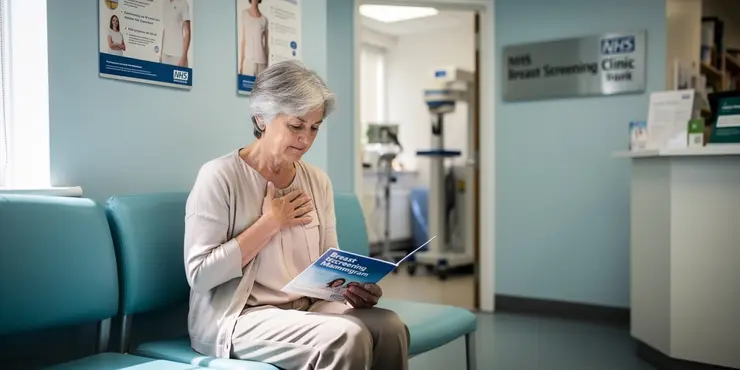
Is a mammogram painful?
Relevance: 28%
-
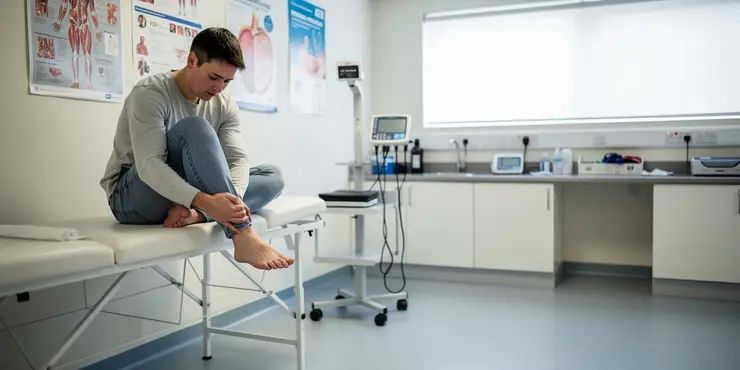
Foot Pain
Relevance: 26%
-
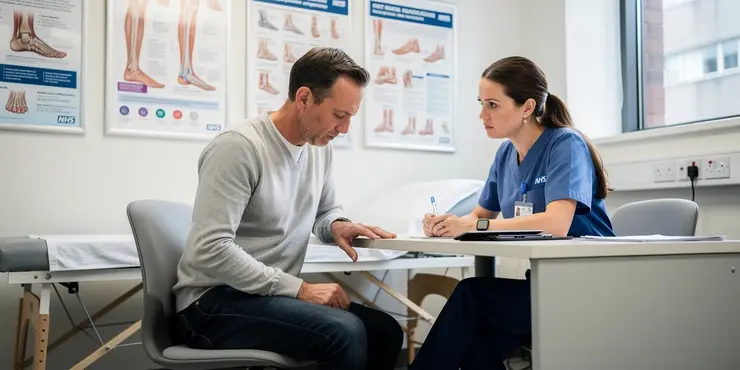
Heel pain | NHS
Relevance: 26%
-

What is the notice period for redundancy?
Relevance: 26%
-

Is impetigo painful?
Relevance: 25%
-
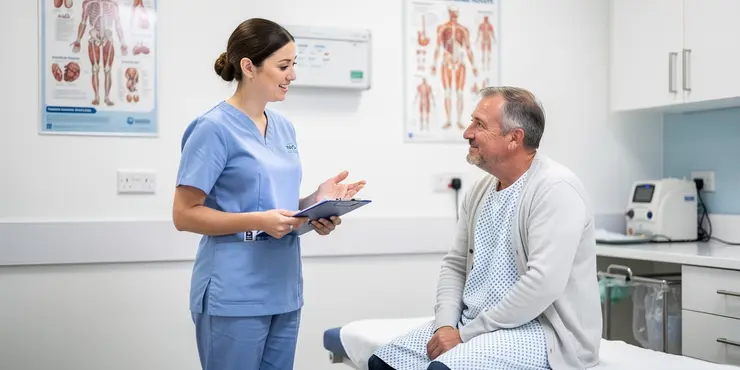
What should I avoid doing during the recovery period?
Relevance: 25%
-

What you need to know about irregular periods
Relevance: 25%
-
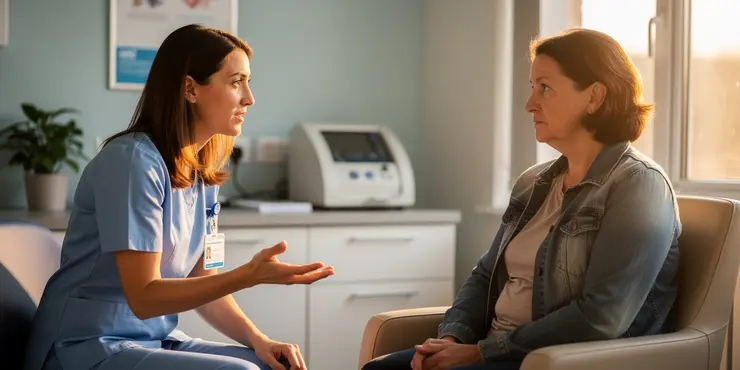
Will I feel pain during the procedure?
Relevance: 24%
-
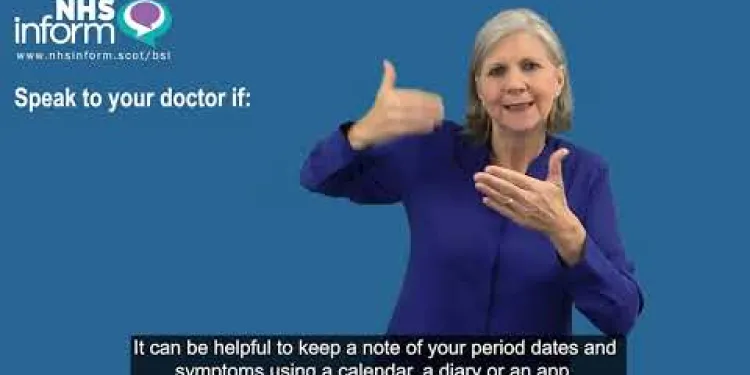
Heavy periods (heavy menstrual bleeding)
Relevance: 24%
-
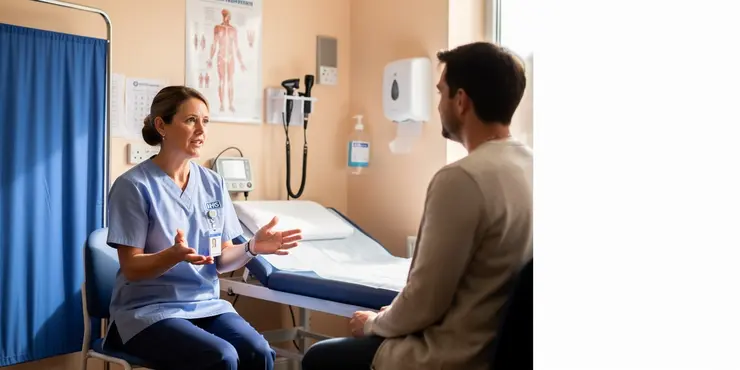
Has the notice period for eviction changed?
Relevance: 24%
-
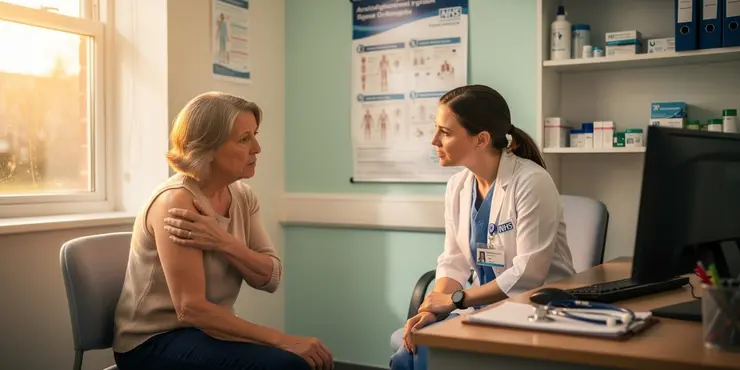
Shoulder pain | NHS
Relevance: 24%
-
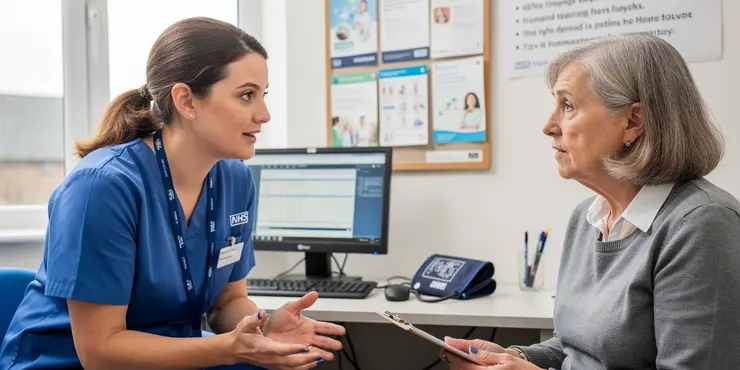
How long is the incubation period for the Marburg virus?
Relevance: 24%
-
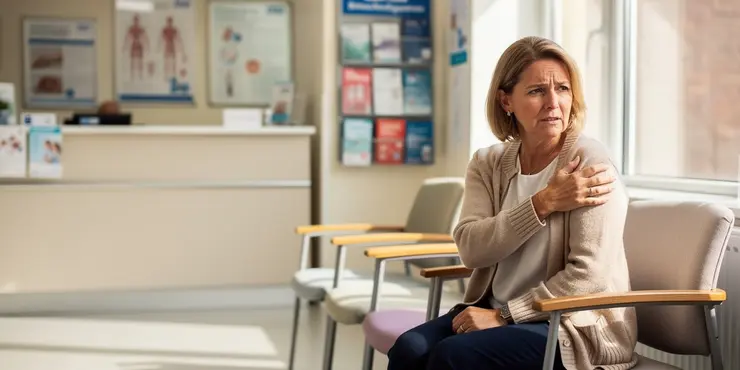
Shoulder pain | NHS
Relevance: 24%
-
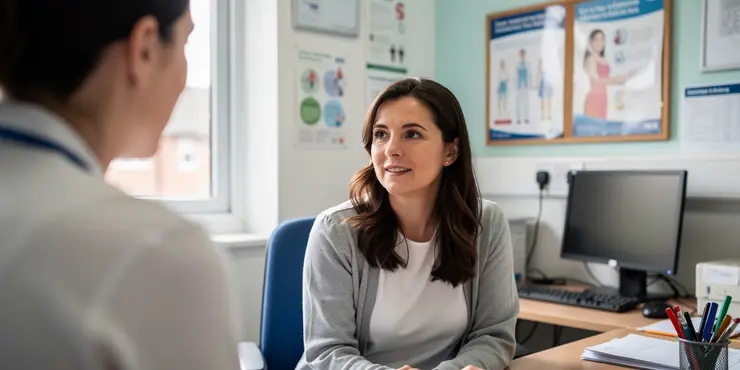
Stomach ache and abdominal pain
Relevance: 24%
-

How to treat back pain | NHS
Relevance: 23%
-
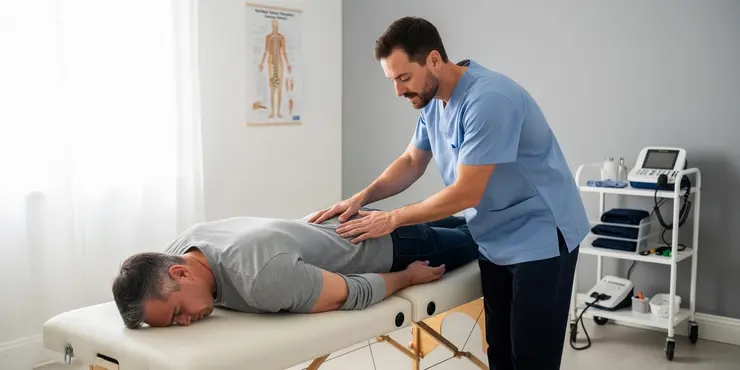
Are chiropractic treatments painful?
Relevance: 23%
-

What is the grace period for the penalty point system?
Relevance: 23%
-
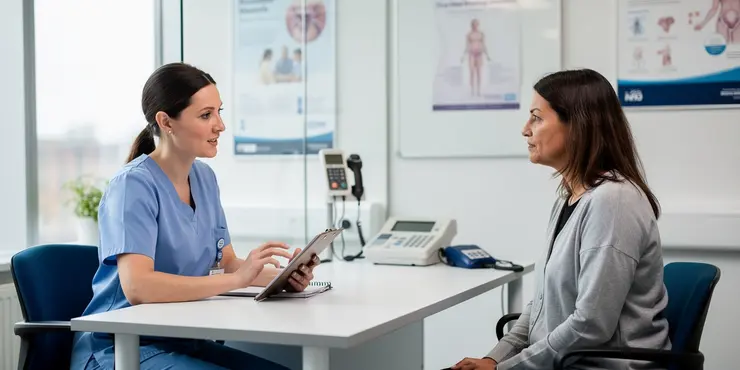
Is the womb lining test painful?
Relevance: 23%
-
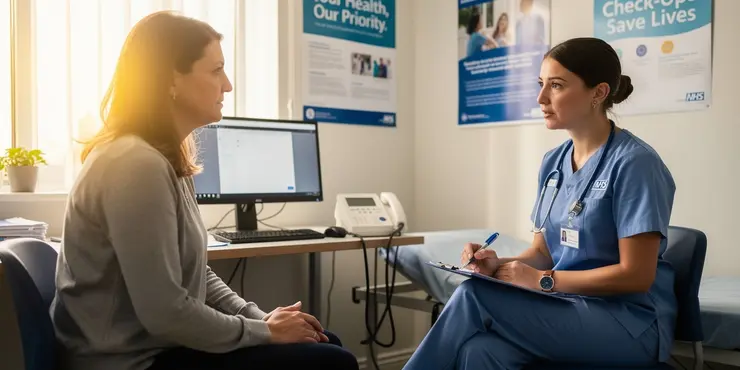
Can the test be performed during my menstrual period?
Relevance: 23%
-
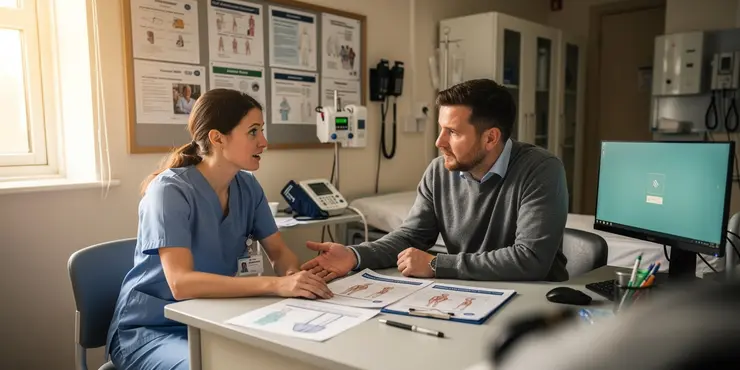
Mechanical Lower Back Pain
Relevance: 23%
-
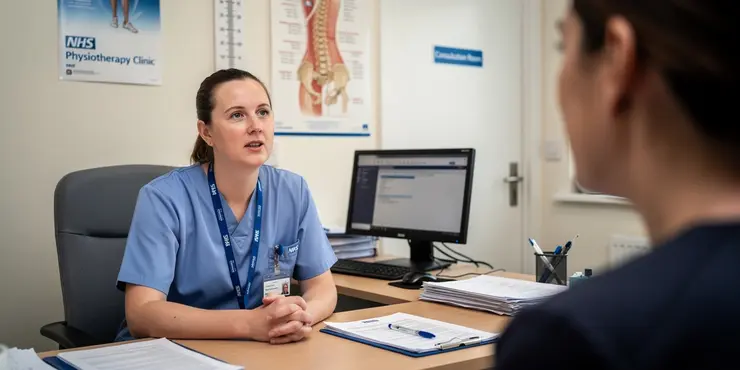
Advice on neck pain and whiplash
Relevance: 23%
-
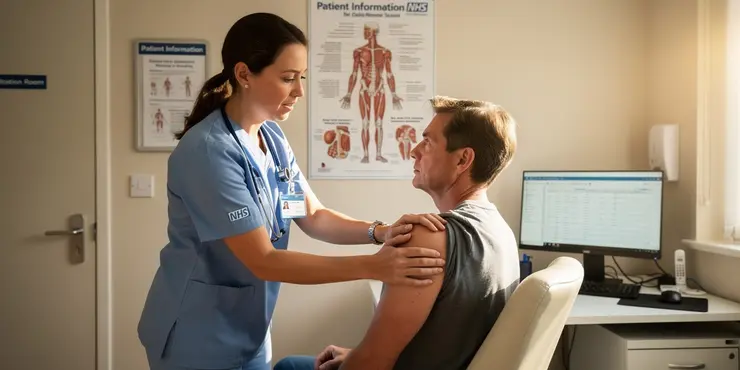
Shoulder subacromial shoulder pain
Relevance: 23%
-
Shoulder pain | NHS
Relevance: 22%
-

Treating breast pain | United Lincolnshire Hospitals NHS Trust
Relevance: 22%
-
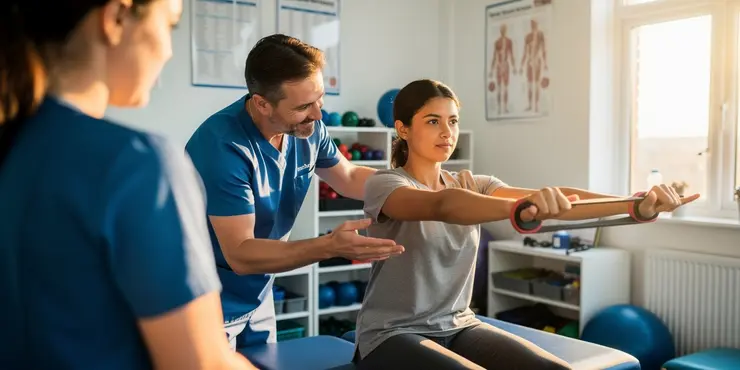
Greater trochanteric pain syndrome
Relevance: 22%
-
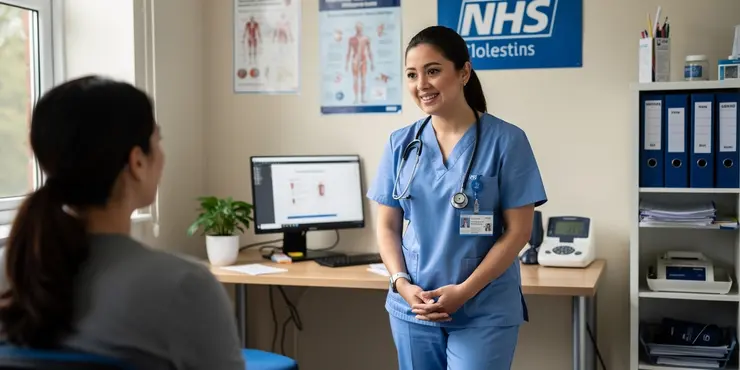
What happens when the introductory APR period ends?
Relevance: 22%
-
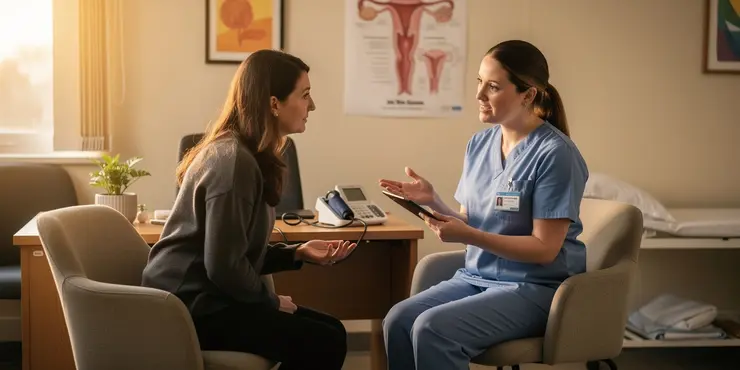
Is a womb lining test painful?
Relevance: 22%
-
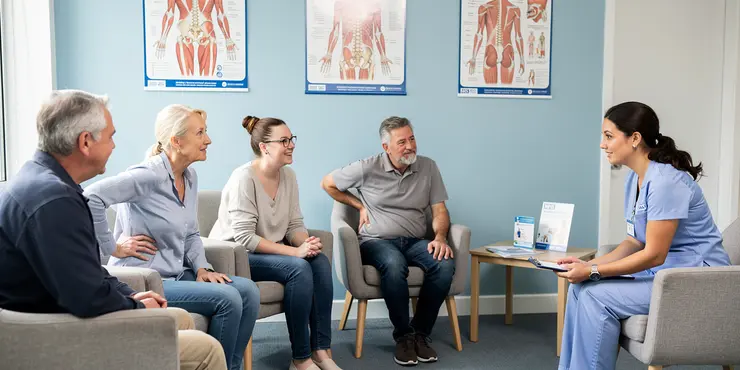
Useful information for patients with lower back pain
Relevance: 21%
-
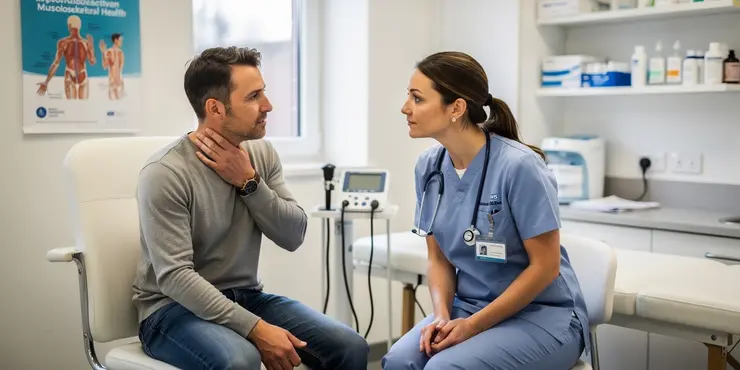
What is the role of pain management in treating whiplash?
Relevance: 21%
-
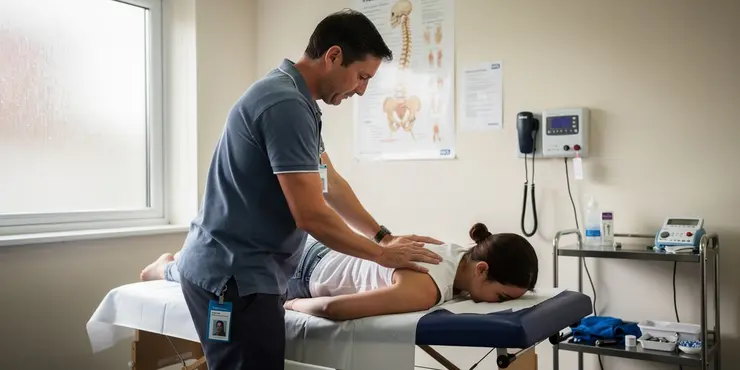
How do chiropractors treat back pain?
Relevance: 21%
-
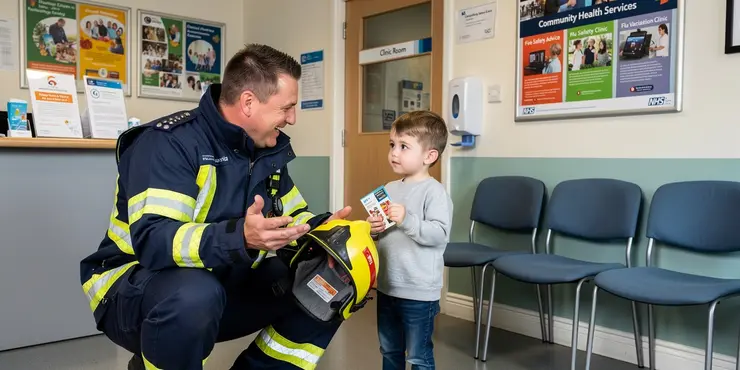
What is the minimum service period to qualify for firefighter pension benefits?
Relevance: 21%
-
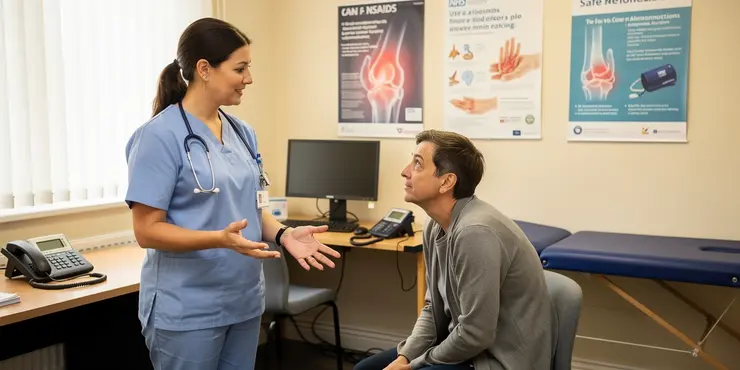
How do NSAIDs work to reduce pain?
Relevance: 21%
Period Pain (Dysmenorrhoea) - BSL
Introduction
Period pain, also known as dysmenorrhoea, is a common issue that affects many people during their menstrual cycle. This discomfort can range from mild to severe and can sometimes interfere with daily activities. British Sign Language (BSL) users also experience period pain and may seek information and support in their preferred language.
Causes of Period Pain
Period pain occurs due to the contractions of the uterus as it sheds its lining. These contractions are triggered by hormone-like substances called prostaglandins. High levels of prostaglandins can cause more intense contractions and, thus, more pain. Other factors that can contribute to dysmenorrhoea include endometriosis, fibroids, and pelvic inflammatory disease.
Symptoms of Dysmenorrhoea
Common symptoms of period pain include cramping or aching in the lower abdomen, lower back pain, and discomfort spreading to the thighs. Some individuals may also experience nausea, fatigue, and headaches. Symptoms usually start one to two days before menstruation and can last from several hours to a few days.
Managing Period Pain for BSL Users
BSL users can manage period pain through various methods. Over-the-counter pain relief, such as ibuprofen or paracetamol, can help alleviate symptoms. Applying heat to the lower abdomen, such as using a hot water bottle or a heating pad, is another effective method. Gentle exercise and relaxation techniques like yoga and meditation may also provide relief.
When to Seek Medical Help
While period pain is common, severe or persistent pain should not be ignored. If the pain is interfering significantly with daily life, it's essential to seek medical advice. Healthcare providers can offer further evaluation and treatment options, such as hormonal therapies or other medications.
Conclusion
Dysmenorrhoea is a common but manageable condition that affects many people, including those who use British Sign Language. By understanding the causes, symptoms, and management techniques, individuals can better navigate their menstrual health. If severe pain persists, consulting with a healthcare professional is crucial for proper diagnosis and treatment.
Period Pain (Dysmenorrhoea) - BSL
Introduction
Period pain is when your tummy hurts during your menstrual cycle. It can be mild or very painful. This can make it hard to do daily things. People who use British Sign Language (BSL) may also have this pain and need help in their language.
Causes of Period Pain
Period pain happens because the uterus squeezes to remove its lining. This squeezing is due to substances called prostaglandins. More prostaglandins can cause more pain. Other things that can cause the pain are endometriosis, fibroids, and pelvic inflammatory disease.
Symptoms of Dysmenorrhoea
When you have period pain, you might feel cramps or aches in your lower stomach. You might also feel pain in your lower back or in your thighs. Some people also feel sick, tired, or have headaches. These symptoms can start 1 to 2 days before your period and last for a few days.
Managing Period Pain for BSL Users
There are ways to help with period pain. You can take medicine like ibuprofen or paracetamol. Using heat, like a hot water bottle, on your tummy can help. Doing light exercise, yoga, or meditation can also make you feel better.
When to Seek Medical Help
If the period pain is very bad and does not go away, you should see a doctor. If the pain makes daily life hard, it's important to get medical help. Doctors can give you more ways to feel better, like hormonal treatment or other medicines.
Conclusion
Period pain is common, but you can manage it. Knowing what causes the pain and how to help it can make it easier to deal with. If the pain is very bad, talk to a doctor for help.
Frequently Asked Questions
What is dysmenorrhoea?
Dysmenorrhoea is the medical term for painful menstrual periods, which can range from mild to severe cramping.
What are the common symptoms of dysmenorrhoea?
Common symptoms include lower abdominal pain, lower back pain, nausea, vomiting, diarrhoea, and headaches.
What causes period pain?
Period pain is primarily caused by the contraction of the uterine muscles to shed its lining. Sometimes, underlying conditions like endometriosis or fibroids can contribute to the pain.
Is dysmenorrhoea a common condition?
Yes, dysmenorrhoea is very common and affects many women of reproductive age. It is the most common gynaecological condition.
How is dysmenorrhoea diagnosed?
Diagnosis usually involves a medical history review and a physical examination. In some cases, additional tests like ultrasounds or laparoscopy might be required to rule out other conditions.
Can lifestyle changes help manage period pain?
Yes, regular exercise, a healthy diet, adequate sleep, and stress management can help reduce the severity of period pain.
What over-the-counter medications can help with period pain?
Nonsteroidal anti-inflammatory drugs (NSAIDs) such as ibuprofen or aspirin can be effective in alleviating period pain.
Are there any home remedies for alleviating period pain?
Yes, applying heat to the lower abdomen, having warm baths, practicing relaxation techniques, and using essential oils or herbal teas may reduce pain.
When should I see a doctor about period pain?
You should consult a doctor if the pain is severe, if you experience other symptoms like heavy bleeding, or if the pain suddenly worsens.
Can hormonal contraceptives help with dysmenorrhoea?
Yes, birth control pills, patches, and hormonal IUDs can help regulate or reduce menstrual pain for many women.
Can dietary changes help reduce period pain?
Yes, reducing caffeine, alcohol, and high-fat foods while increasing the intake of fruits, vegetables, and whole grains may help alleviate symptoms.
Is it normal to experience mood swings with dysmenorrhoea?
Yes, hormone fluctuations during your menstrual cycle can lead to mood swings and emotional changes.
Can alternative therapies help with period pain?
Some women find relief from alternative therapies such as acupuncture, acupressure, or chiropractic care, though results can vary.
Is dysmenorrhoea related to any other health conditions?
Yes, conditions such as endometriosis, fibroids, and pelvic inflammatory disease can contribute to dysmenorrhoea.
Is it possible to prevent dysmenorrhoea?
While it may not be entirely preventable, maintaining a healthy lifestyle and managing underlying health issues can help reduce the frequency and severity of period pain.
What is dysmenorrhoea?
Dysmenorrhoea is a medical word that means period pain. It is when your tummy hurts during your period. Some people also have back pain or feel sick.
To help with dysmenorrhoea, you can:
- Use a heating pad or hot water bottle on your tummy.
- Take pain medicine like ibuprofen.
- Try gentle exercises or stretches.
- Talk to a doctor if it hurts a lot.
These things can make you feel better during your period.
Dysmenorrhoea means having painful periods. Your stomach might hurt a little or a lot during your period.
If your stomach hurts a lot, here are some things that might help:
- Put a warm blanket or heat pack on your tummy.
- Drink warm drinks like tea.
- Try taking deep breaths to relax.
- Ask a trusted adult or doctor if you can take medicine to help with the pain.
If the pain is too much, it's always a good idea to talk to a doctor or a grown-up you trust.
What are the common signs of period pains?
Many people get period pains. Here are some signs:
- Belly aches or cramps
- Feeling tired
- Feeling sick or throwing up
- Headaches
- Feeling dizzy
To help, you can try:
- Using a hot water bottle on your belly
- Taking deep breaths
- Asking a grown-up for medicine
Common signs of this problem are:
- Pain in your tummy
- Pain in your lower back
- Feeling sick or wanting to throw up
- Runny poo
- Headaches
These tools can help:
- Use pictures or videos to understand better.
- Talk to a friend or adult if you feel unwell.
Why do periods hurt?
Period pain happens because the muscles in the belly squeeze to help the body get rid of its lining. Sometimes, other health issues like endometriosis or fibroids can make the pain worse.
If reading is hard, try using tools that read text out loud. Highlighting text as you go can also help with understanding.
Is period pain common?
Yes, many women feel pain during their periods. This is called dysmenorrhoea. It happens to lots of women who can have babies. It is the most common problem for women in this area.
How do doctors find out if you have period pain?
To find out what is wrong, the doctor will ask you about your health in the past and check your body.
Sometimes, the doctor may need to do extra tests like taking pictures inside your body (an ultrasound) or using a special camera (laparoscopy) to look inside.
These tests help the doctor make sure it is not something else causing the problem.
Can changing how you live help with period pain?
Yes, doing exercise, eating healthy food, getting enough sleep, and managing stress can help make period pain less bad.
What can I buy to help with period pain?
You can buy some medicines at the store that might help with period pain. Here are some you can try:
- Pain relievers like ibuprofen or aspirin. These can help stop the pain.
- Heat packs. Put them on your tummy to feel better.
Other things that can help:
- Rest and take it easy.
- Drink warm drinks like tea.
If the pain is very bad, it is important to ask an adult or a doctor for help. They can give you more advice.
Medicines like ibuprofen or aspirin can help with period pain.
What can I do at home to help with period pain?
Here are some things you can try:
- Use a warm water bottle on your tummy.
- Take deep breaths to help you relax.
- Drink warm drinks like tea.
- Do easy exercises like walking.
- Try gentle stretches or yoga.
- Ask someone to give you a gentle massage.
If these don't help, talk to an adult or a doctor. They can help you find other ways to feel better.
Yes, there are things you can do to help with pain. You can put something warm on your tummy, take warm baths, and try to relax. Drinking herbal teas or using special oils can also help you feel better.
When should I go to the doctor for period pain?
If you have bad tummy pain when you have your period, think about seeing a doctor. Here are some times to visit the doctor:
- If the pain is really strong and stops you from doing things.
- If the pain lasts a lot longer than your period.
- If the pain starts all of a sudden and is very bad.
- If pain relief like painkillers do not help.
- If you have a fever, feel sick, or have strange bleeding.
Use these ideas to help you talk to the doctor:
- Write down when you have pain and how it feels.
- Use a phone or diary to keep track of your periods.
Your doctor can help you feel better and find out why you have pain.
If the pain is very bad, you should see a doctor. See a doctor if you have other symptoms like a lot of bleeding, or if the pain gets much worse all of a sudden.
Do birth control pills help with period pain?
- Some people use birth control pills to stop bad period pain. - These pills can make periods lighter and less painful. Tip: - Talk to a doctor about using birth control pills for period pain. - Keep track of how you feel on a calendar. - Use a heating pad or try gentle exercise to feel better.Yes, birth control pills, patches, and hormonal IUDs can help make period pain better for many women.
Can eating different foods help make period pain better?
Yes, drinking less coffee and alcohol can help. Also, eating less fatty foods might make you feel better. Try to eat more fruits, veggies, and whole grain foods instead.
Do you have mood changes when you have period pain?
It is common to feel different moods when you have period pain. Sometimes you might feel happy, and other times sad or upset. This is normal.
If you need help, talk to someone like a doctor or a nurse. They can give you ideas to feel better.
Try keeping a diary of your feelings. Write down how you feel each day. This can help you understand your moods more.
Yes, hormones can change during your period. This can make you feel happy or sad at different times.
Can different treatments help with period pain?
Some women feel better with different kinds of treatments. These can be acupuncture, acupressure, or special back care. But, these things might not work the same for everyone.
Does having period pain mean you have other health problems?
Period pain is when your tummy hurts during your period.
Sometimes, if you have very bad period pain, it might mean you have other health issues.
If your period pain is really bad, it is good to talk to a doctor.
Using warm packs or taking medicine can help make the pain less.
Yes, some health problems can make period pain worse. These include:
- Endometriosis: This is when tissue like the lining inside the womb grows outside it.
- Fibroids: These are non-cancerous lumps that can grow in the womb.
- Pelvic inflammatory disease: This is an infection in the female reproductive organs.
These can all cause painful periods.
If you find periods very painful, talk to an adult you trust, like a doctor. They can help find what’s wrong and suggest ways to feel better. You can also try things at home. For example, use a warm water bottle on your tummy to ease the pain or use relaxation activities like breathing exercises. You could ask a trusted grown-up for help.
Can you stop period pain before it starts?
You can't always stop period pain. But living healthy and taking care of health problems can help make period pain happen less and hurt less.
Useful Links
This website offers general information and is not a substitute for professional advice.
Always seek guidance from qualified professionals.
If you have any medical concerns or need urgent help, contact a healthcare professional or emergency services immediately.
Some of this content was generated with AI assistance. We’ve done our best to keep it accurate, helpful, and human-friendly.
- Ergsy carfully checks the information in the videos we provide here.
- Videos shown by Youtube after a video has completed, have NOT been reviewed by ERGSY.
- To view, click the arrow in centre of video.
- Most of the videos you find here will have subtitles and/or closed captions available.
- You may need to turn these on, and choose your preferred language.
- Go to the video you'd like to watch.
- If closed captions (CC) are available, settings will be visible on the bottom right of the video player.
- To turn on Captions, click settings .
- To turn off Captions, click settings again.
More Items From Ergsy search
-

Period pain (dysmenorrhoea) - BSL
Relevance: 100%
-

How to deal with period pain | NHS
Relevance: 66%
-

How to deal with period pain | NHS
Relevance: 57%
-

How to deal with period pain | NHS
Relevance: 53%
-

How to deal with period pain | NHS
Relevance: 53%
-

Can I use Ibuprofen for menstrual pain?
Relevance: 30%
-

Irregular periods - BSL
Relevance: 30%
-

Is a facelift painful?
Relevance: 30%
-

Is a mammogram painful?
Relevance: 28%
-

Foot Pain
Relevance: 26%
-

Heel pain | NHS
Relevance: 26%
-

What is the notice period for redundancy?
Relevance: 26%
-

Is impetigo painful?
Relevance: 25%
-

What should I avoid doing during the recovery period?
Relevance: 25%
-

What you need to know about irregular periods
Relevance: 25%
-

Will I feel pain during the procedure?
Relevance: 24%
-

Heavy periods (heavy menstrual bleeding)
Relevance: 24%
-

Has the notice period for eviction changed?
Relevance: 24%
-

Shoulder pain | NHS
Relevance: 24%
-

How long is the incubation period for the Marburg virus?
Relevance: 24%
-

Shoulder pain | NHS
Relevance: 24%
-

Stomach ache and abdominal pain
Relevance: 24%
-

How to treat back pain | NHS
Relevance: 23%
-

Are chiropractic treatments painful?
Relevance: 23%
-

What is the grace period for the penalty point system?
Relevance: 23%
-

Is the womb lining test painful?
Relevance: 23%
-

Can the test be performed during my menstrual period?
Relevance: 23%
-

Mechanical Lower Back Pain
Relevance: 23%
-

Advice on neck pain and whiplash
Relevance: 23%
-

Shoulder subacromial shoulder pain
Relevance: 23%
-
Shoulder pain | NHS
Relevance: 22%
-

Treating breast pain | United Lincolnshire Hospitals NHS Trust
Relevance: 22%
-

Greater trochanteric pain syndrome
Relevance: 22%
-

What happens when the introductory APR period ends?
Relevance: 22%
-

Is a womb lining test painful?
Relevance: 22%
-

Useful information for patients with lower back pain
Relevance: 21%
-

What is the role of pain management in treating whiplash?
Relevance: 21%
-

How do chiropractors treat back pain?
Relevance: 21%
-

What is the minimum service period to qualify for firefighter pension benefits?
Relevance: 21%
-

How do NSAIDs work to reduce pain?
Relevance: 21%


